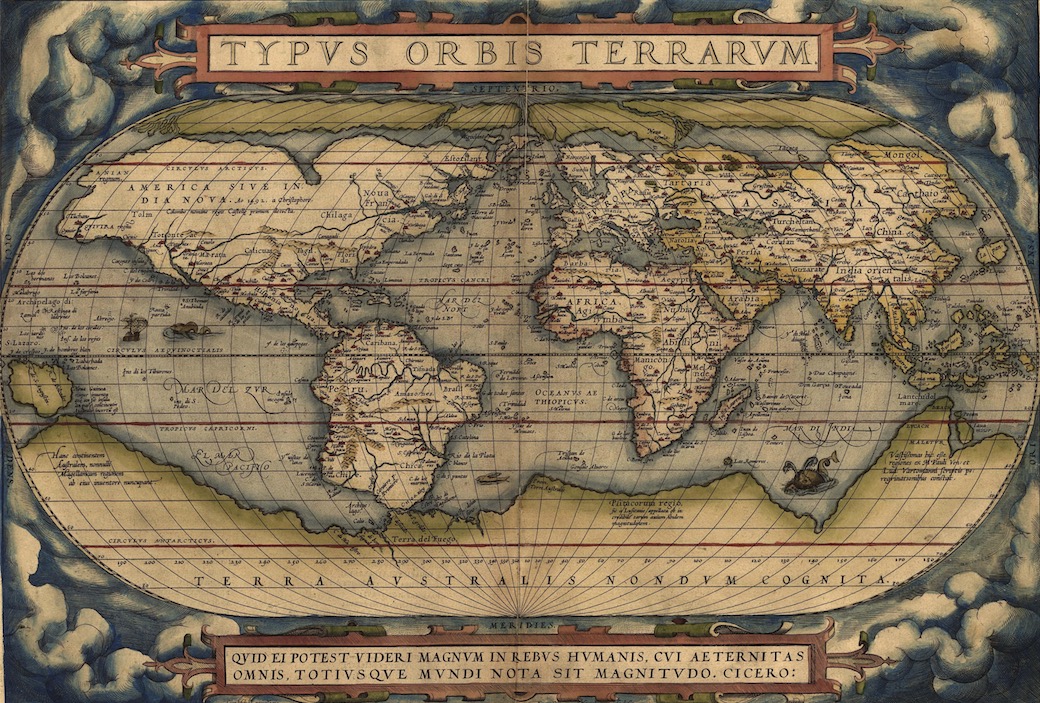 Martial
Arts Heritage is as Global as it is Personal Martial
Arts Heritage is as Global as it is Personal
By John Clements
ARMA Director
This is the most difficult piece I've ever written
about the subject of martial arts. Probably no matter what I express
here it's going to be misread by someone somewhere. But no less, here
it goes: Every January, I receive a wave of New Year applications
for ARMA memberships and inquiries for introductory sessions at my
Iron Door School of Arms. Invariably, there's always at least one
person who feels the need to express in the section on why they are
interested that it's because they want to pursue "white martial arts".
...Ugggh. Needless to say, I delete such applications and emails.
Now, one could certainly make a case that it's simply
poor wording choice on the part of the individual and what they really
meant is that they are interested in the authentic Western fighting
methods of their own European ancestors. Fair enough. It's a reasonable
interest for anyone to want to know about a past they feel some connection
toward. But, the phrase "white martial arts" is loaded with certain
implicit insinuations and subtexts I'd just prefer to avoid. My first
instinct is to respond, "Riiiggghttt... I'm not gonna touch that."
As with any other historical styles, these are fighting
arts self-evidently from a specific geographic, cultural, and temporal
region. It’s certainly “occidental.” Why assign any other label? Personally,
I'm not going there. I see it as unnecessarily divisive. It's neither
welcoming nor inclusive and I refuse to dignify it (I even had a falling
out with a close colleague over just such an attitude). Similarly,
those individuals whose inquiries express a certain resentment or
grievance towards the popularity of more established and widely known
martial arts traditions of other cultures strike me as characters
with whom I wouldn't get along or care to be associated. To me, it's
as ignorant as insulting different cuisines or different music. And
I write this as someone who when a teen on several occasions was told
to my face with veiled derision how "you in the West had no martial
arts."
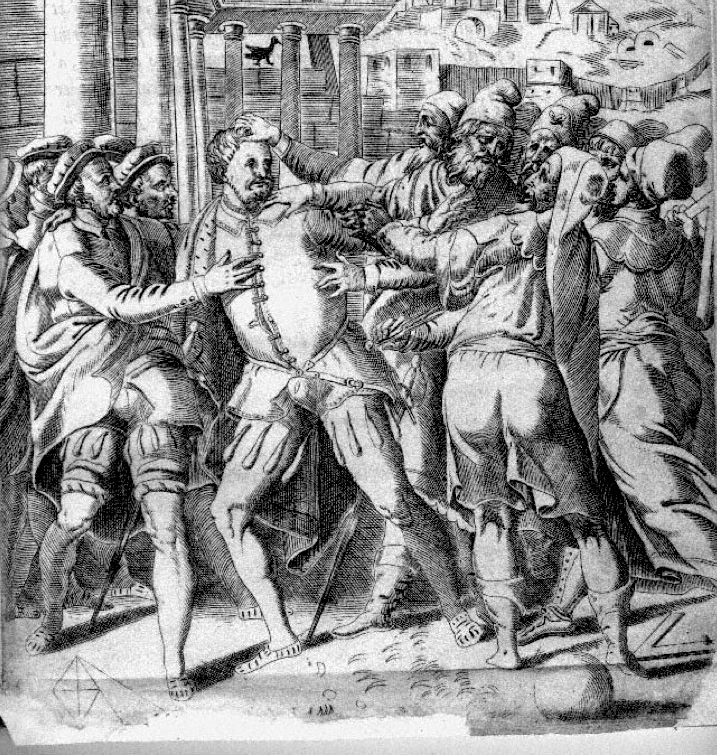 I
have heard the phrase "martial arts of the orient" (as opposed to
Occident) but I never heard of anything being referred to as "yellow
martial arts" or "brown martial arts" or, for that matter, by any
other color or racial grouping, nor do I wish to see it start. Yes,
most fighting arts are designated as being from particular nations,
lands, or regions that historically were both ethnically and culturally
homogeneous. But again, so what? I perfectly understand the excitement
someone feels when they learn that their ancestors actually documented
sophisticated martial art systems that can be practiced once again.
I entirely relate to the sense of pride in realizing that martial
arts weren't something limited to a few places on one part of the
planet. But, I also equally understand the sense of wonder and curiosity
felt by anyone from anywhere wanting to explore and gain prowess in
"exotic foreign" teachings out of a warrior past. I have tens of students
around the world, from Korea to Israel to Russia, and it's no different
for them to learn 14th century Kunst des Fechten or La Destreza
of the Spanish court than it is for my Lebanese neighbor to be interested
in kenjutsu or kung fu. (Though to be honest, I do tend to roll my
eyes at modern Westerners so infatuated with being samurai or ninja
that it becomes their entire self-identity.) I
have heard the phrase "martial arts of the orient" (as opposed to
Occident) but I never heard of anything being referred to as "yellow
martial arts" or "brown martial arts" or, for that matter, by any
other color or racial grouping, nor do I wish to see it start. Yes,
most fighting arts are designated as being from particular nations,
lands, or regions that historically were both ethnically and culturally
homogeneous. But again, so what? I perfectly understand the excitement
someone feels when they learn that their ancestors actually documented
sophisticated martial art systems that can be practiced once again.
I entirely relate to the sense of pride in realizing that martial
arts weren't something limited to a few places on one part of the
planet. But, I also equally understand the sense of wonder and curiosity
felt by anyone from anywhere wanting to explore and gain prowess in
"exotic foreign" teachings out of a warrior past. I have tens of students
around the world, from Korea to Israel to Russia, and it's no different
for them to learn 14th century Kunst des Fechten or La Destreza
of the Spanish court than it is for my Lebanese neighbor to be interested
in kenjutsu or kung fu. (Though to be honest, I do tend to roll my
eyes at modern Westerners so infatuated with being samurai or ninja
that it becomes their entire self-identity.)
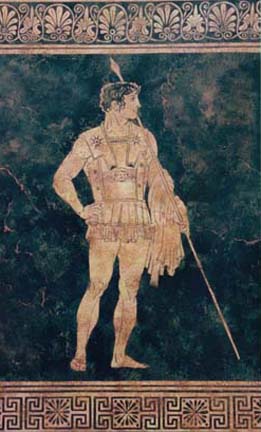 I
suppose that as a modern American, whose ancestry is Italian, Sicilian,
German, and English, I don't readily identify with any one ethnic
or national affiliation when it comes to what Renaissance martial
art sources I enjoy studying. Yes, my ancestry is entirely European,
but so what? My style of study is the systematic fighting arts of
Western civilization during a specific time known as the Medieval
and Renaissance eras. It is the "noble art and science of defence"
--and among the most sophisticated and effective ever devised. They
are unequivocally the martial arts of Western civilization
(just as its Asian counterparts are those of Eastern civilizations).
Not only that, but I do not know of a single historical source of
Renaissance martial arts teachings that could not essentially be described
as being "Latin," or connected directly to Judaeo-Christian ideas
of chivalry (itself undeniably connected to per-Christian Germanic,
Nordic, and Celtic concepts). But even then, it owes a tremendous
debt to the Greek within the "Greco-Roman" and we cannot for
an instant ignore Slavic martial contributions, either. I
suppose that as a modern American, whose ancestry is Italian, Sicilian,
German, and English, I don't readily identify with any one ethnic
or national affiliation when it comes to what Renaissance martial
art sources I enjoy studying. Yes, my ancestry is entirely European,
but so what? My style of study is the systematic fighting arts of
Western civilization during a specific time known as the Medieval
and Renaissance eras. It is the "noble art and science of defence"
--and among the most sophisticated and effective ever devised. They
are unequivocally the martial arts of Western civilization
(just as its Asian counterparts are those of Eastern civilizations).
Not only that, but I do not know of a single historical source of
Renaissance martial arts teachings that could not essentially be described
as being "Latin," or connected directly to Judaeo-Christian ideas
of chivalry (itself undeniably connected to per-Christian Germanic,
Nordic, and Celtic concepts). But even then, it owes a tremendous
debt to the Greek within the "Greco-Roman" and we cannot for
an instant ignore Slavic martial contributions, either.
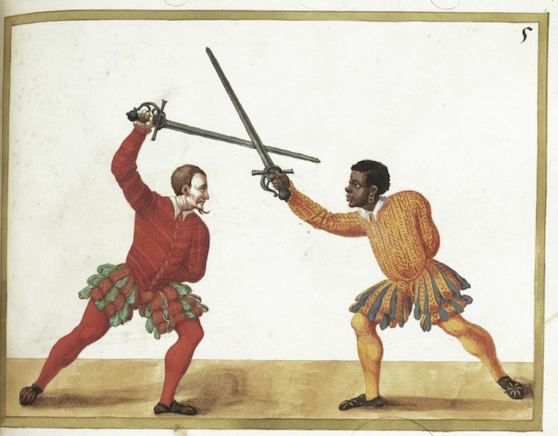 But
what of that loaded phrase "white martial arts"? Why should I find
it troublesome? I'll leave it to the reader to explore that on their
own, but I will say with regard to the martial arts of Renaissance
Europe, we certainly are talking about a body of literature reflecting
fighting methods and self-defense systems produced by people who were
undeniably Caucasian, sure. But so what? Should anyone today really
care one way or the other? (What exactly, I wonder, would the applicants
I reject make of the fact that there are black Africans prominently
featured training in our 15th and 16th century sources? or the frequency
of brown-skinned icons of Saint Maurice in knightly armor? or the
contribution made by Jews?) It's funny, but when I was a child and
would see martial arts films or historical epics I had no problem
either identifying with or not identifying with the warriors and duelists
on screen, because as a child I was more or less oblivious to it.
Ethnic identity, racial affiliation, et cetera, was irrelevant to
the fact that I was seeing heroic fighting men overcoming injustice
with skill and courage. I think I never outgrew that even as I came
to discover and promote the very subject I do. But
what of that loaded phrase "white martial arts"? Why should I find
it troublesome? I'll leave it to the reader to explore that on their
own, but I will say with regard to the martial arts of Renaissance
Europe, we certainly are talking about a body of literature reflecting
fighting methods and self-defense systems produced by people who were
undeniably Caucasian, sure. But so what? Should anyone today really
care one way or the other? (What exactly, I wonder, would the applicants
I reject make of the fact that there are black Africans prominently
featured training in our 15th and 16th century sources? or the frequency
of brown-skinned icons of Saint Maurice in knightly armor? or the
contribution made by Jews?) It's funny, but when I was a child and
would see martial arts films or historical epics I had no problem
either identifying with or not identifying with the warriors and duelists
on screen, because as a child I was more or less oblivious to it.
Ethnic identity, racial affiliation, et cetera, was irrelevant to
the fact that I was seeing heroic fighting men overcoming injustice
with skill and courage. I think I never outgrew that even as I came
to discover and promote the very subject I do.
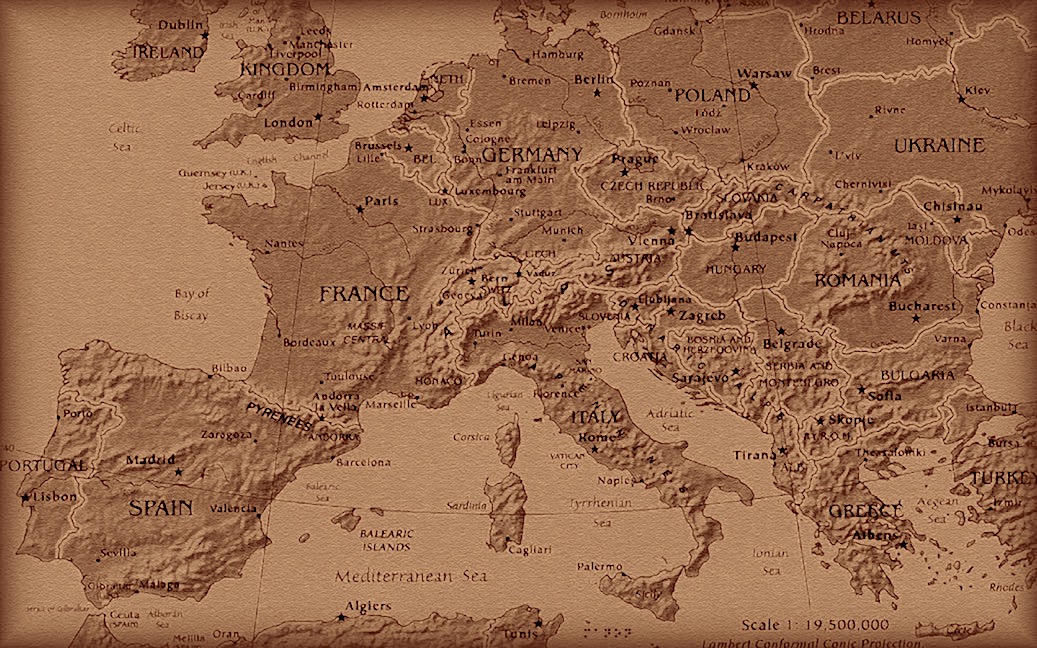 Amusingly,
ascribing a racial component to our craft is as irrelevant as it is
incongruous. One does not have to go back many centuries or generations
to find extreme prejudice and hatred between the very groups that
make up what the minuscule number of applicants whom I reject would
like to call "white martial arts." There was enmity between Celts
and Latins, Scots and English, English and Irish, between almost anyone
within the Italian states, and among nearly endless other peoples
from Spain to the Baltic and Belgium to the Balkans. I'm quite sure
a 16th century Venetian, for instance, would have plenty of rude and
crude insults to give any number of Lombards, Flems, Burgundians,
Basques, Bohemians, Britons and what have you. Plus, nearly all of
them at one time or another were going to war with Turks and Saracens
(who were busy fighting themselves). None of which matters the slightest
today to our work in recovering and reviving forgotten martial skills.
Incidentally, the Latin word for greater groups of humans such as
tribes, nations, or what we call peoples, was gentes. It's
worth nothing that they had an understanding of these things and yet
did not obsess over them. Amusingly,
ascribing a racial component to our craft is as irrelevant as it is
incongruous. One does not have to go back many centuries or generations
to find extreme prejudice and hatred between the very groups that
make up what the minuscule number of applicants whom I reject would
like to call "white martial arts." There was enmity between Celts
and Latins, Scots and English, English and Irish, between almost anyone
within the Italian states, and among nearly endless other peoples
from Spain to the Baltic and Belgium to the Balkans. I'm quite sure
a 16th century Venetian, for instance, would have plenty of rude and
crude insults to give any number of Lombards, Flems, Burgundians,
Basques, Bohemians, Britons and what have you. Plus, nearly all of
them at one time or another were going to war with Turks and Saracens
(who were busy fighting themselves). None of which matters the slightest
today to our work in recovering and reviving forgotten martial skills.
Incidentally, the Latin word for greater groups of humans such as
tribes, nations, or what we call peoples, was gentes. It's
worth nothing that they had an understanding of these things and yet
did not obsess over them.
 In
an age when they had Scottish masters presenting French fencing, or
Florentine masters teaching in Scandinavia, Flemish masters teaching
Spanish fencing at the Court of France, and Spanish masters teaching
in Italy, not to mention knights from most anywhere traveling across
the continent to engage in tournament contests, labeling things now
with modern nationalistic identities is all but meaningless. Arguably,
a case can be made that it's actually difficult to refer to "Italian"
martial arts excepting in regard to those authors originating among
the Italian city states. The same can be said for those sources originating
among Germanic states or kingdoms, or rather, those that were under
Germanic political control at the time their teachings were recorded. In
an age when they had Scottish masters presenting French fencing, or
Florentine masters teaching in Scandinavia, Flemish masters teaching
Spanish fencing at the Court of France, and Spanish masters teaching
in Italy, not to mention knights from most anywhere traveling across
the continent to engage in tournament contests, labeling things now
with modern nationalistic identities is all but meaningless. Arguably,
a case can be made that it's actually difficult to refer to "Italian"
martial arts excepting in regard to those authors originating among
the Italian city states. The same can be said for those sources originating
among Germanic states or kingdoms, or rather, those that were under
Germanic political control at the time their teachings were recorded.
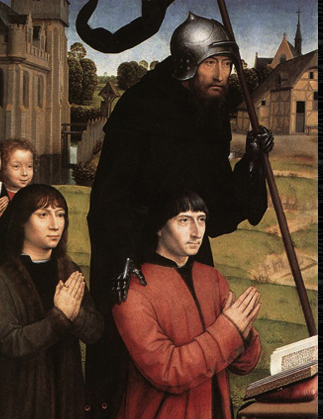 So
again, as a modern American, from a country that did not have a 'Middle
Ages" or experience "the Renaissance," I'm fascinated with European
history from those times. (And I don't really relate to my European
colleagues who seem insistent upon limiting themselves to focus on
source works produced within their own country —what they see as their
"ancestors.") Though, I will confess that more than once I have put
it to some American obsessed with being a modern Western samurai,
"So... you really revere this discipline from a social and religious
structure that essentially said, 'honor your ancestors' ...hmm...
wonder what your instructor thinks of your doing that?" The
point being, no culture is immune from its particular history of prejudices
and bigotry and we shouldn't pretend otherwise. Besides, the martial
arts of Asia are much more than just those of the "Orient" but includes
ones from the larger Pacific rim, the Indian subcontinent, Persia,
and elsewhere. So
again, as a modern American, from a country that did not have a 'Middle
Ages" or experience "the Renaissance," I'm fascinated with European
history from those times. (And I don't really relate to my European
colleagues who seem insistent upon limiting themselves to focus on
source works produced within their own country —what they see as their
"ancestors.") Though, I will confess that more than once I have put
it to some American obsessed with being a modern Western samurai,
"So... you really revere this discipline from a social and religious
structure that essentially said, 'honor your ancestors' ...hmm...
wonder what your instructor thinks of your doing that?" The
point being, no culture is immune from its particular history of prejudices
and bigotry and we shouldn't pretend otherwise. Besides, the martial
arts of Asia are much more than just those of the "Orient" but includes
ones from the larger Pacific rim, the Indian subcontinent, Persia,
and elsewhere.
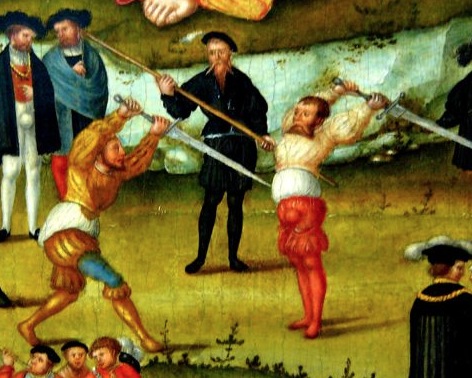 Now,
it's absolutely understandable if someone says that because of their
family background, or even lineage, they feel a direct cultural connection
for the personal combat disciplines of their own nation or distant
relations. Hence, someone in Japan would naturally be more inclined
to study traditional Japanese styles, or someone in the Philippines
would be regularly exposed to Filipino arts, and so on. But here's
where I will make an observation: you don't have to be Russian to
dance well in a Tchaikovsky ballet, or be English to perform admirably
in a production of Shakespeare's Hamlet, or be Italian to make great
pizza. You don't have to be a native of India to enjoy an excellent
curry, be Swiss to build a fine watch, or descended from samurai to
practice jujitsu superbly. You might be able to better read directions
for performing a samba if you know Portuguese like your grandparents,
but that doesn't mean you can dance it better. None of this kind of
information is held genetically, none of this kind of knowledge and
wisdom is dependent upon our family tree and indeed, none of these
activities favors a particular genotype. Further, most often little
to none of the skills and talents involved is cultural, let alone
any longer exclusive to one community, clan, neighborhood, household,
or whatever. While there is no disputing that the origin of certain
fighting styles could favor indigenous physiques and temperaments,
benefit from its original milieu, or be aided by the footwear and
garments once worn by those inhabitants who developed it, this is
much less true today. Bottom line is, neither race nor national identity
plays a part in how we learn and what we achieve in any combat discipline.
What matters is individual effort and attitude. Now,
it's absolutely understandable if someone says that because of their
family background, or even lineage, they feel a direct cultural connection
for the personal combat disciplines of their own nation or distant
relations. Hence, someone in Japan would naturally be more inclined
to study traditional Japanese styles, or someone in the Philippines
would be regularly exposed to Filipino arts, and so on. But here's
where I will make an observation: you don't have to be Russian to
dance well in a Tchaikovsky ballet, or be English to perform admirably
in a production of Shakespeare's Hamlet, or be Italian to make great
pizza. You don't have to be a native of India to enjoy an excellent
curry, be Swiss to build a fine watch, or descended from samurai to
practice jujitsu superbly. You might be able to better read directions
for performing a samba if you know Portuguese like your grandparents,
but that doesn't mean you can dance it better. None of this kind of
information is held genetically, none of this kind of knowledge and
wisdom is dependent upon our family tree and indeed, none of these
activities favors a particular genotype. Further, most often little
to none of the skills and talents involved is cultural, let alone
any longer exclusive to one community, clan, neighborhood, household,
or whatever. While there is no disputing that the origin of certain
fighting styles could favor indigenous physiques and temperaments,
benefit from its original milieu, or be aided by the footwear and
garments once worn by those inhabitants who developed it, this is
much less true today. Bottom line is, neither race nor national identity
plays a part in how we learn and what we achieve in any combat discipline.
What matters is individual effort and attitude.
In many cultures, the primal idea of a connection
between ethnicity and virtue was expressed by the term "blood" —as
in, bad blood, impure blood, mixed blood, half blood, family blood,
etc. Today, this is anachronistic, to put it mildly. We've replaced
it with debates over nature and nurture. While it's perfectly true
to point out that a particular fighting style may contain techniques
or elements better fitting the overall physical build of its native
fighting population, the diversity of human physical form is such
that one can find matching body types among different peoples around
the globe. That some methods of fighting or some arms and armor developed
more in isolation than did others, also renders any indigenous advantage
assertion irrelevant today. Not to mention that our global culture,
combined with the ease of international travel, allows people to readily
share in even the most obscure and secretive fighting methods from
antiquity with ease.
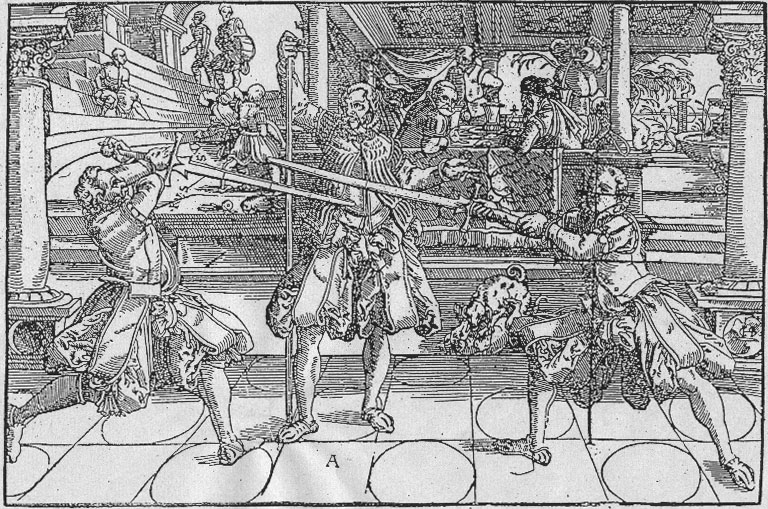 This
is why I love the Master Joachim Meyer's statement in 1570 on the
necessity of knowing how every man fights, because even though we
all move differently and all think differently, everyone must attest
that all fighting comes from a common basis. So true. Yet, I will
confess that I get a tremendous enjoyment out of crushing people's
misconceptions about Medieval and Renaissance combat skills. I immensely
enjoy educating people out of their ignorance about the craft that
is my life's work, especially when they have thought themselves wise
about all matters "martial art." Too long the definition of the term
has been entirely synonymous with meaning popular Asian fighting styles,
and I am more than happy to have played a large part in changing that.
But when I do inform people, I do it out of the love of history and
heritage I hold as a scholar and practitioner. This
is why I love the Master Joachim Meyer's statement in 1570 on the
necessity of knowing how every man fights, because even though we
all move differently and all think differently, everyone must attest
that all fighting comes from a common basis. So true. Yet, I will
confess that I get a tremendous enjoyment out of crushing people's
misconceptions about Medieval and Renaissance combat skills. I immensely
enjoy educating people out of their ignorance about the craft that
is my life's work, especially when they have thought themselves wise
about all matters "martial art." Too long the definition of the term
has been entirely synonymous with meaning popular Asian fighting styles,
and I am more than happy to have played a large part in changing that.
But when I do inform people, I do it out of the love of history and
heritage I hold as a scholar and practitioner.
I will share an anecdote: I once had a conversation
over breakfast with a respected modern Japanese samurai. His being
both a well-traveled veteran martial artist of a noted tradition as
well as a senior citizen, I was curious to put a question to him.
I premised my question with the statement that: given how —in terms
of arms and armor and military methods— the samurai of the year 1250
were not identical to the samurai of the year 1450, who were certainly
not the same as the samurai of 1650, let alone those of 1850 or 2015,
what exactly then, I asked, was the 'fighting tradition' he was practicing
and preserving? The response I received through his interpreter was
remarkably reassuring. He told me that it was "none of them and all
of them." His answer was exactly the response I had wanted but hardly
expected to hear, for I have long held the very same view towards
the pursuit of my Art. I also believe in the modern world this is
true for study of all of the world's martial arts "traditions."
To use an analogy: My wife is proud to share her grandmother's
delicious recipe for Cajun chicken stew knowing full well that those
who attempt it will never match the delightful subtlety of flavors
that she grew up with. This doesn't stop her from offering others
the opportunity to at least attempt to enjoy some version reminiscent
of what she so fondly remembers from her youth. That with every occasion
she makes the dish, she herself knows that although her own version
is not exactly identical, it is less important than using the same
ingredients and following the right steps to produce and share something
both comforting and delicious. Traditional martial arts study is much
the same. We are not those who once developed and employed these methods
out of necessity. In most cases we are far removed from them and the
environments in which they existed. Like the samurai master above,
we are all modernists even as we try to hold connection with the past;
whether or not it is our direct ancestry isn't the point.
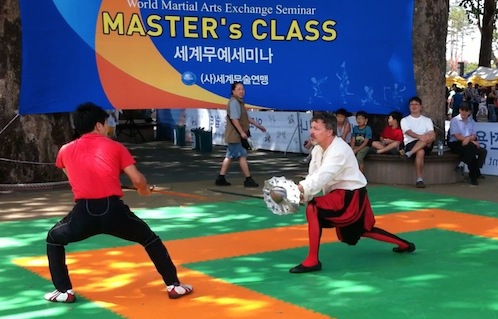 If
we refer to German martial arts or English martial arts, or to Swiss
or Spanish, to Norse or Hungarian, there's no issue involved any more
than there is to point out that Japanese martial arts were conceived
and practiced by natives of Japan. It's no more relevant than to note
that Thai food was originally created and eaten by Thais or French
cuisine by the French. Were there times when particular Asian martial
arts traditions were not taught to "outsiders" from other lands? Absolutely.
There hasn't been a culture on Earth that hasn't been guilty of its
own form of ethnocentrism at one time or another. But I don't see
anybody holding a grudge about it. As Bruce Lee himself showed, if
you value a tradition or part of a heritage as worthwhile, then share
it proudly with whoever will learn. Does it matter anymore if you
are "1/16th" this or zero-percent "that"? If
we refer to German martial arts or English martial arts, or to Swiss
or Spanish, to Norse or Hungarian, there's no issue involved any more
than there is to point out that Japanese martial arts were conceived
and practiced by natives of Japan. It's no more relevant than to note
that Thai food was originally created and eaten by Thais or French
cuisine by the French. Were there times when particular Asian martial
arts traditions were not taught to "outsiders" from other lands? Absolutely.
There hasn't been a culture on Earth that hasn't been guilty of its
own form of ethnocentrism at one time or another. But I don't see
anybody holding a grudge about it. As Bruce Lee himself showed, if
you value a tradition or part of a heritage as worthwhile, then share
it proudly with whoever will learn. Does it matter anymore if you
are "1/16th" this or zero-percent "that"?
 I've
had some experience in this matter myself in my dealings with the
World Martial Arts Union (WoMAU) as the official representative for
Renaissance martial arts —albeit seated as the delegate from Poland.
How did I as an American citizen with minimal Slavic ancestry come
to represent the country of Poland as being singled out for a diverse
international craft that at the time was pan-European and even now
is still being reconstructed in efforts around the globe? The answer
has to do with the fact that the organization is associated with the
United Nations as an official body of UNESCO and every and all activities
therein are by default seen through the prism of the modern nation
state. Since there are such things as Chinese martial arts, Korean
martial arts, Malaysian martial arts, Indonesian, etc., etc., then
any other fighting style must also be directly associated with a nation
state and its national ethnic body. Obviously this is not the case,
especially with a revived and reconstructed art from centuries past
with zero surviving pedagogic lineage. This assumption wrongly ignores
centuries of demographic, cultural, social, and political change,
not to mention other assorted upheavals and the evolution of military
technology. I've
had some experience in this matter myself in my dealings with the
World Martial Arts Union (WoMAU) as the official representative for
Renaissance martial arts —albeit seated as the delegate from Poland.
How did I as an American citizen with minimal Slavic ancestry come
to represent the country of Poland as being singled out for a diverse
international craft that at the time was pan-European and even now
is still being reconstructed in efforts around the globe? The answer
has to do with the fact that the organization is associated with the
United Nations as an official body of UNESCO and every and all activities
therein are by default seen through the prism of the modern nation
state. Since there are such things as Chinese martial arts, Korean
martial arts, Malaysian martial arts, Indonesian, etc., etc., then
any other fighting style must also be directly associated with a nation
state and its national ethnic body. Obviously this is not the case,
especially with a revived and reconstructed art from centuries past
with zero surviving pedagogic lineage. This assumption wrongly ignores
centuries of demographic, cultural, social, and political change,
not to mention other assorted upheavals and the evolution of military
technology.
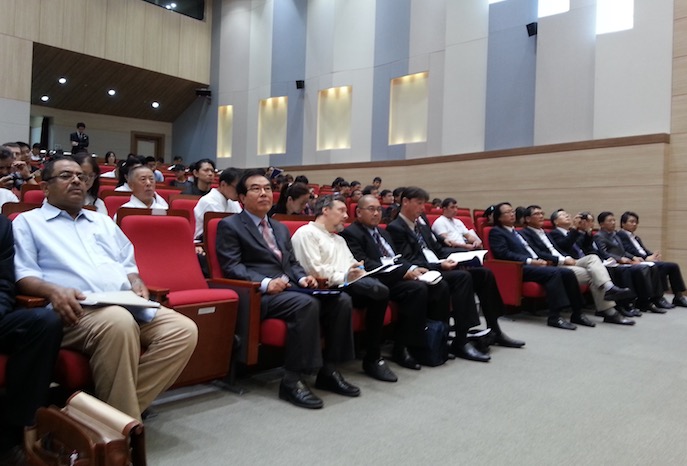 The
WoMAU wanted to recognize the legitimacy of Renaissance martial arts
study and include it, but their organizational structure required
every representative to be affiliated with a nation state. Poland
was not yet represented in the Union, and, as it was, I had study
groups in there. That Poland was not a major participant in the historic
changes occurring during the Renaissance era is arguable, but what
is not deniable is its connection with and great contributions to
combat skills from the Middle Ages and continuing well into the 17th
century. (Besides, it's not like the Union could select people from
every EU nation from out dozens of fledgling HEMA groups to represent
every major historical source style now being studied. Better to get
an individual already experienced in teaching internationally who
can represent the subject both physically and scholastically at a
high level while also possessing deep knowledgeable of other martial
traditions.) The
WoMAU wanted to recognize the legitimacy of Renaissance martial arts
study and include it, but their organizational structure required
every representative to be affiliated with a nation state. Poland
was not yet represented in the Union, and, as it was, I had study
groups in there. That Poland was not a major participant in the historic
changes occurring during the Renaissance era is arguable, but what
is not deniable is its connection with and great contributions to
combat skills from the Middle Ages and continuing well into the 17th
century. (Besides, it's not like the Union could select people from
every EU nation from out dozens of fledgling HEMA groups to represent
every major historical source style now being studied. Better to get
an individual already experienced in teaching internationally who
can represent the subject both physically and scholastically at a
high level while also possessing deep knowledgeable of other martial
traditions.)
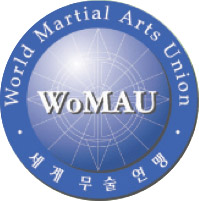 But
the point is that there was a real prejudice in the misguided (though
well-intentioned) assumption by the Union's founders that every martial
art tradition comes to exist only within individual nation states
or is limited to one ethnic grouping. It's taken considerable effort
on my part to communicate to my fellow delegates the fact that historically,
the martial arts of Renaissance Europe, though regional, were largely
transnational. It's current study and recovery transcends any one
country, nation, ethnic body, or organization. But
the point is that there was a real prejudice in the misguided (though
well-intentioned) assumption by the Union's founders that every martial
art tradition comes to exist only within individual nation states
or is limited to one ethnic grouping. It's taken considerable effort
on my part to communicate to my fellow delegates the fact that historically,
the martial arts of Renaissance Europe, though regional, were largely
transnational. It's current study and recovery transcends any one
country, nation, ethnic body, or organization.
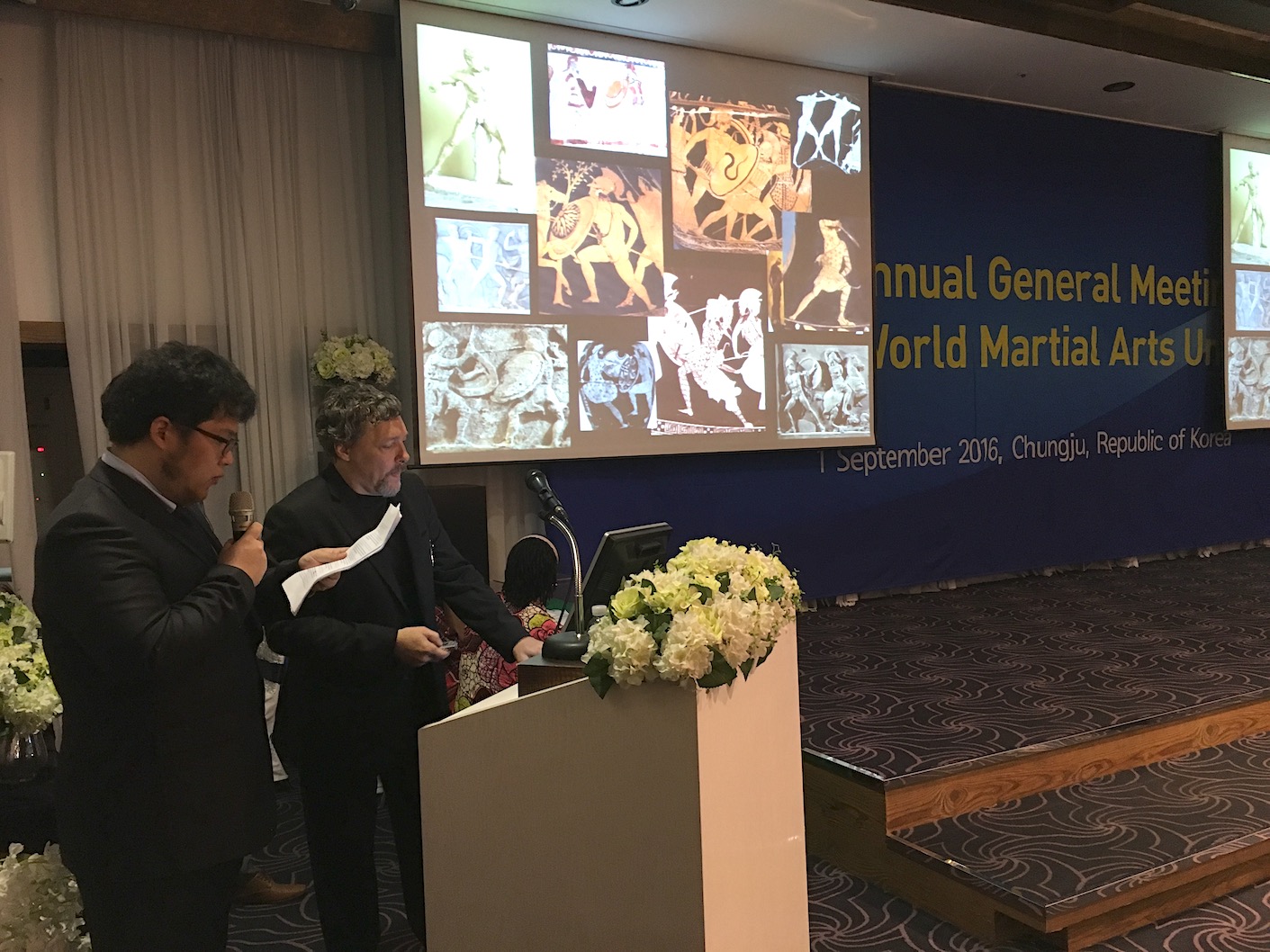 The
pleasant irony to all this is of course that the supposedly traditional
Asian martial arts are themselves the beneficiaries of the spread
of a global culture that has given them such international recognition
and popularity over the past six decades or so. It was only modern
international trade, travel, and communication that brought about
such an exchange. Even more so, there are many delegates in the WoMAU
from European and Middle Eastern countries who represent specific
Asian martial art styles that were only introduced to their countries
in the mid 20th century. In that regard, they can hardly be called
the "traditional" fighting art of those nations, let alone be considered
in any way indigenous (though they do reflect modern aspects of their
parent styles). By contrast, unlike Renaissance martial arts study,
the various member styles of the WoMAU also enjoy official state sanction
and government subsidy on behalf of their country of origin. Their
fighting styles are considered to embody intangible cultural heritage
of their nations —regardless of what minority portion in their society
actually studied them in the past. The
pleasant irony to all this is of course that the supposedly traditional
Asian martial arts are themselves the beneficiaries of the spread
of a global culture that has given them such international recognition
and popularity over the past six decades or so. It was only modern
international trade, travel, and communication that brought about
such an exchange. Even more so, there are many delegates in the WoMAU
from European and Middle Eastern countries who represent specific
Asian martial art styles that were only introduced to their countries
in the mid 20th century. In that regard, they can hardly be called
the "traditional" fighting art of those nations, let alone be considered
in any way indigenous (though they do reflect modern aspects of their
parent styles). By contrast, unlike Renaissance martial arts study,
the various member styles of the WoMAU also enjoy official state sanction
and government subsidy on behalf of their country of origin. Their
fighting styles are considered to embody intangible cultural heritage
of their nations —regardless of what minority portion in their society
actually studied them in the past.
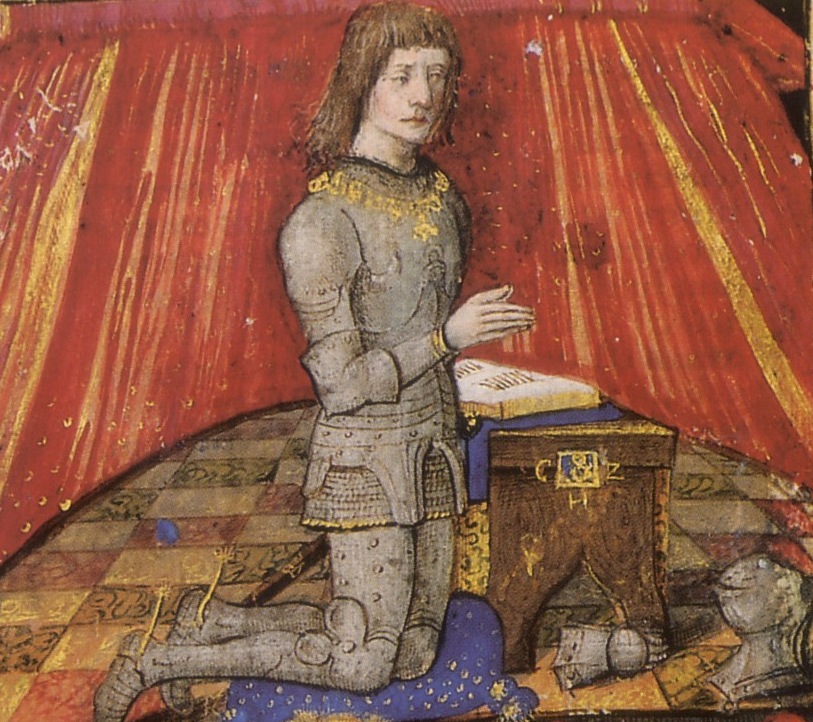 Regardless
of all this, what the Union delegates of different styles and nations
share in common is a sincere love and respect for martial arts in
all its diversity, and the goal of educating how it is an important
part of the humanities. We all come together in celebrating both the
distinctions and similarities among the world's martial cultures and
the mutual challenge faced by preserving traditions in the modern
world. I never heard anyone ever express that their martial art was
black or brown or yellow or “non-white”. Same goes for anyone ever
saying their fighting style was Taoist or Islamic or Buddhist or Christian
(indeed, it would be inappropriate). Though the delegates have their
own private and public curricula, and in many cases their individual
style is hardly the only art from the country they represent, they
nonetheless stand in for all of them. Regardless
of all this, what the Union delegates of different styles and nations
share in common is a sincere love and respect for martial arts in
all its diversity, and the goal of educating how it is an important
part of the humanities. We all come together in celebrating both the
distinctions and similarities among the world's martial cultures and
the mutual challenge faced by preserving traditions in the modern
world. I never heard anyone ever express that their martial art was
black or brown or yellow or “non-white”. Same goes for anyone ever
saying their fighting style was Taoist or Islamic or Buddhist or Christian
(indeed, it would be inappropriate). Though the delegates have their
own private and public curricula, and in many cases their individual
style is hardly the only art from the country they represent, they
nonetheless stand in for all of them.
In this regard, one has to admire a South Korean program
that offers free scholarships to youths from around the world to come
study Korean martial arts without promotion of any ethnic, ideological,
or cultural agenda other than the benefits of fitness and discipline.
They are sharing their martial culture with pride, charity, and good
will.
It's actually a curious phenomenon: that the rise
of global pop culture, mixed martial art sports, and eclectic fighting
styles has caused traditionalists to band together and share what
was once exclusive and private, all in the understanding that representation
is stronger when done as a group. In doing so, in celebrating and
promoting, we've come to see things as less about specific "ancestry"
than it is about our general forebears of different cultures being
members of a human species. (Interestingly enough, this is something
I've always taken as tacit acknowledgment that true diversity is only
intellectual and cultural). Our "forebears are literally those who
came before us and by that regard we share a common human heritage."
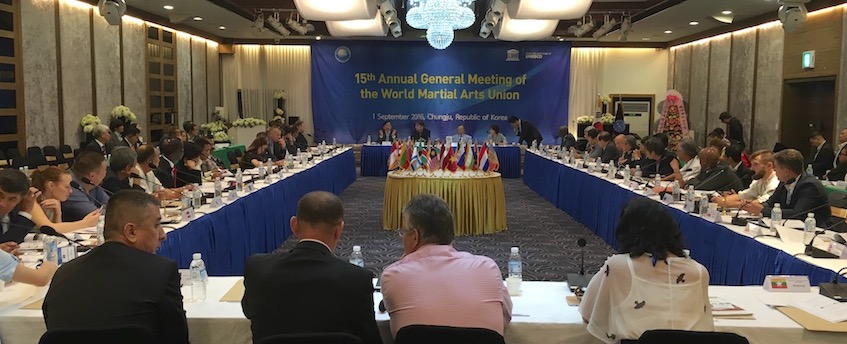
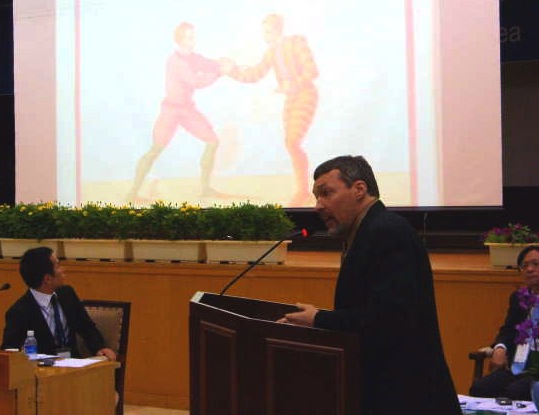 Ultimately,
recognition of the universal elements of martial arts practice among
peoples around the world teaches an appreciation for both our differences
and commonalities that serves to remind us of our shared humanity.
It's absolutely right to feel a certain sense of pride when you feel
some type of cultural or ancestral connection to some positive achievement
and accomplishment that contributed to human civilization. But those
feelings should not arise merely because you see some familial or
ethnic lines at work, but only because you personally share the very
values and virtues of those contributions. The difficulty in this
comes when doing so requires us to weigh the historical context for
admiration against our own modern perspectives of what we consider
values. Ultimately,
recognition of the universal elements of martial arts practice among
peoples around the world teaches an appreciation for both our differences
and commonalities that serves to remind us of our shared humanity.
It's absolutely right to feel a certain sense of pride when you feel
some type of cultural or ancestral connection to some positive achievement
and accomplishment that contributed to human civilization. But those
feelings should not arise merely because you see some familial or
ethnic lines at work, but only because you personally share the very
values and virtues of those contributions. The difficulty in this
comes when doing so requires us to weigh the historical context for
admiration against our own modern perspectives of what we consider
values.
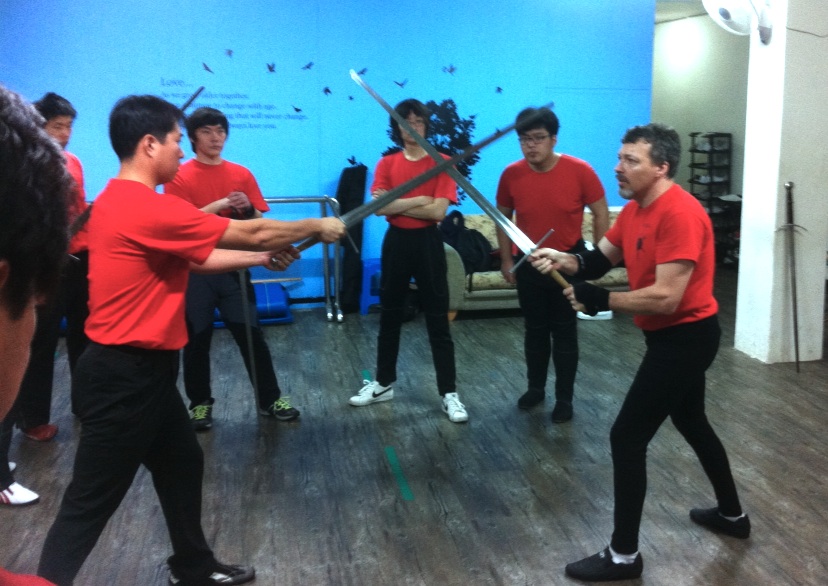 One
of my students in Asia once said they were asked by someone in their
country why they were studying a Western martial art rather than a
native one and he told me that without a moment's hesitation he replied,
"Why not? They study ours." He added that no one should try to make
him feel he had to defend his preference any more than he had to defend
that he was interested in Western movies, music, novels, or food.
He's absolutely right. There is an absurd assertion sometimes pushed
by radicals that anytime you celebrate or enjoy aspects of another
ethnic culture you're somehow doing so without "permission" when what
you are really doing is recognizing and sharing in it as something
of value for everyone. One
of my students in Asia once said they were asked by someone in their
country why they were studying a Western martial art rather than a
native one and he told me that without a moment's hesitation he replied,
"Why not? They study ours." He added that no one should try to make
him feel he had to defend his preference any more than he had to defend
that he was interested in Western movies, music, novels, or food.
He's absolutely right. There is an absurd assertion sometimes pushed
by radicals that anytime you celebrate or enjoy aspects of another
ethnic culture you're somehow doing so without "permission" when what
you are really doing is recognizing and sharing in it as something
of value for everyone.
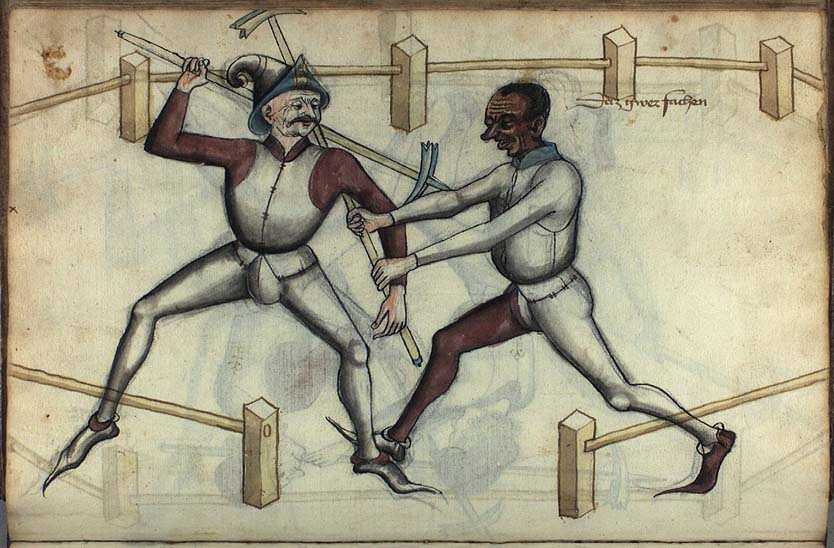
Renaissance
masters and schools of defence did discriminate in who they taught
fighting skills to —and rightly so. But they did it based upon whether
a person was of poor character, questionable virtue, or criminal inclination
—which is something every reputable combat art does. As a historian
and a teacher I don't see it as my job to do anything other than present
the original martial material accurately as much as is possible, and
do so with regard to its original physical and mental context. In
this case, I believe that means without regard to anything except
for its principles, concepts, and ethics of self-defense. The sources
for Renaissance martial arts teachings do not refer to themselves
and their Art "racially" and thus neither will I. Those who have a
need to do differently are not going to find a sympathetic place in
our fellowship.
It's said that heritage is a matter of descent, really.
We're all every one of us descended from some people from somewhere. Go back far enough and we're all interrelated. Go back
only a short while and it hardly matters. I sympathize with the sentiment
that there is a certain "unspoken rule that only non-Occidentals be allowed to
express any 'civilizational consciousness'." At some point this is going to have to be acknowledged, one way or another. But it is shared values and the virtues of shared ideas that binds us beyond kin.
I have long been proud that our club,
the ARMA, was the first, and still one of the few, to affirm for its
members a specific Credo of Renaissance martial arts studies: Respect
for History and Heritage, 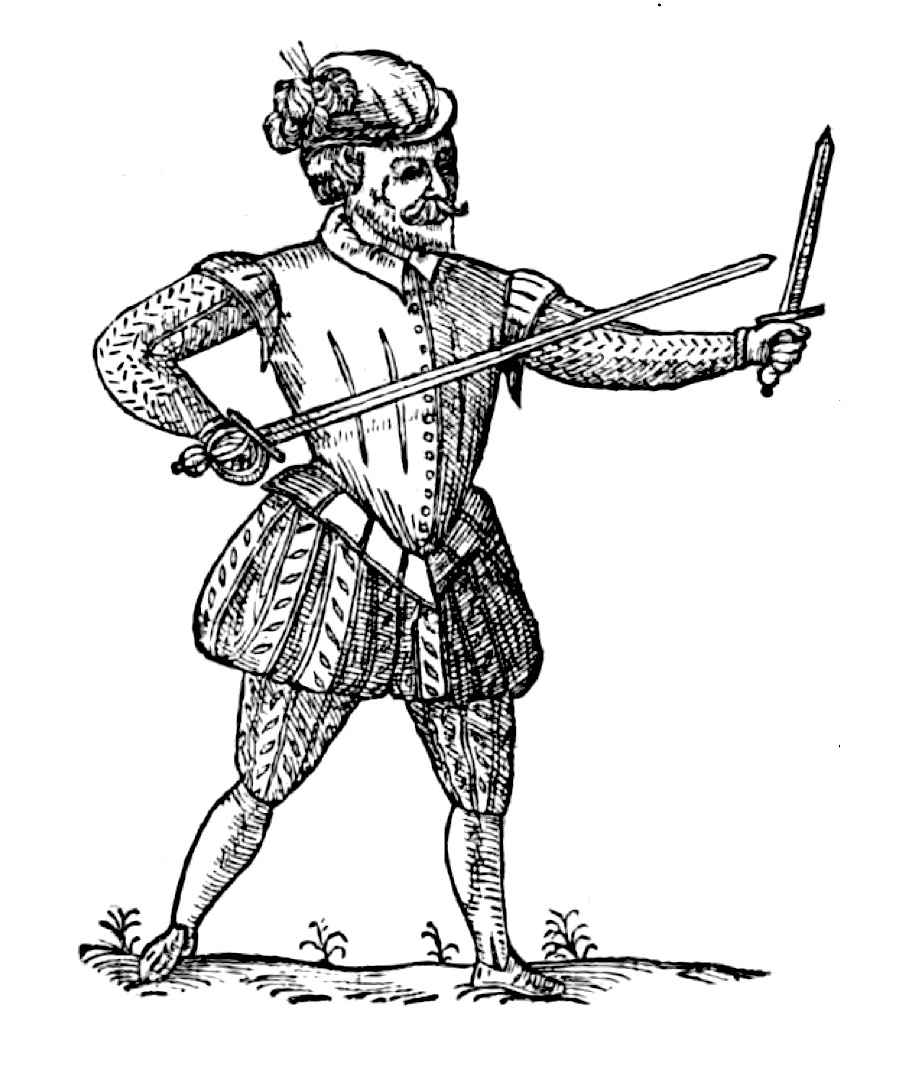 Sincerity
of Effort, Integrity of Scholarship, Appreciation of Martial Spirit,
and Cultivation of Self-Discipline. Note that first phrase includes
the word "heritage" —which is about the thing that we as moderns inherited
from the past. It is not referring to something that was kept within
a family, a tribe, a clan, nation, state, or a "race." It is about
educating ourselves in the inheritance of history, of lessons about
who and what came before us regardless of who we ourselves are or
where we came from. Ancestry is not necessarily your heritage, and
your heritage need not be ancestral. Sincerity
of Effort, Integrity of Scholarship, Appreciation of Martial Spirit,
and Cultivation of Self-Discipline. Note that first phrase includes
the word "heritage" —which is about the thing that we as moderns inherited
from the past. It is not referring to something that was kept within
a family, a tribe, a clan, nation, state, or a "race." It is about
educating ourselves in the inheritance of history, of lessons about
who and what came before us regardless of who we ourselves are or
where we came from. Ancestry is not necessarily your heritage, and
your heritage need not be ancestral.
All the world’s martial arts represent parts of our shared global
history. So, celebrate and respect your heritage whenever and wherever
you find virtue in it, but let others do the same with it as well.
Heritage is as global as it is personal.
|

